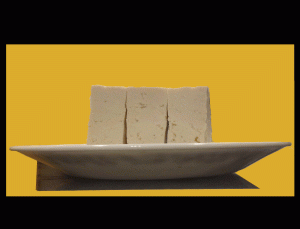As I bring in an acorn squash from my garden as the last of the harvest of the year, my heart is filled with gratitude. Indeed I’m thankful for many other things. Here is a partial list. I am sure you can add many more to your own list (in Chinese, please).
感谢父母的养育.
Gǎnxiè fùmǔ de yǎngyù.
Thanks to my parents for bringing me up.
感谢家人的爱护.
Gǎnxiè jiārén de àihù.
Thanks to my family members for loving me.
感谢老师的教导.
Gǎnxiè lǎoshī de jiàodǎo.
Thanks to my teachers for educating me.
感谢朋友分享欢乐及分担忧虑.
Gǎnxiè péngyǒu fēnxiǎng huānlè jí fēndān yōulǜ.
Thanks to my friends for sharing my joys and worries.
感谢邻居的友情和帮助.
Gǎnxiè línjū de yǒuqíng hé bāngzhù.
Thanks to my neighbors for their friendship and help.
感谢同事的合作.
Gǎnxiè tóngshì de hézuò.
Thanks to my colleagues for their collaboration.
感谢农人生产粮食.
Gǎnxiè nóngrén shēngchǎn liángshi.
Thanks to the farmers who produce food for us.
感谢医护人员的医疗.
Gǎnxiè yī hù rényuán de yīliáo
Thanks to the health care professionals for their treatments
感谢邮差递送信件及包裹.
Gǎnxiè yóuchāi dìsòng xìnjiàn jí bāoguǒ.
Thanks to the mailman for delivering the mail and packages.
感谢能够居住在稳定的社会.
Gǎnxiè nénggòu jūzhù zài wěndìng de shèhuì.
Thanks for being able to live in a stable society.
感谢能够呼吸新鲜的空气及喝清洁的水.
Gǎnxiè nénggòu hūxī xīnxiān de kōngqì jí hē qīngjié de shuǐ.
Thanks for having clean air to breathe and clean water to drink.
感谢有美好的大自然可以欣赏.
Gǎnxiè yǒu měihǎo de dàzìrán kěyǐ xīnshǎng.
Thanks for the beauty in nature for everyone to appreciate.
感谢有悦耳的音乐抚慰我们的心灵.
Gǎnxiè yǒu yuè’ěr de yīnyuè fǔwèi wǒmén de xīnlíng.
Thanks for the beautiful music that comforts the soul.
感谢能够通过网路获取丰富的知识.
Gǎnxiè nénggòu tōngguò wǎnglù huòqǔ fēngfù de zhīshí
Thanks for the Internet that connects me with a wealth of knowledge.
感谢读者爱阅我的书及网页.
Gǎnxiè dúzhě ài yuè wǒde shū jí wǎngyē.
Thanks to my readers for reading my books and web page.
Granted that not all days are rosy, and each one of us has some problems to deal with, let’s remember, though, that it could be much worse. As we’ve mentioned before,
比上不足, 比下有餘.
Bǐshàngbùzú, bǐxiàyǒuyú.
Things may fall short of the best but still be better than the worst.
感恩节快乐!
Gǎnēn jié kuàilè!
Happy Thanksgiving!




Recent Comments